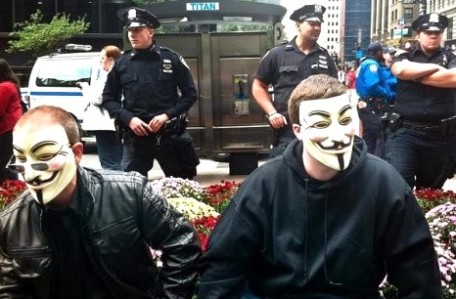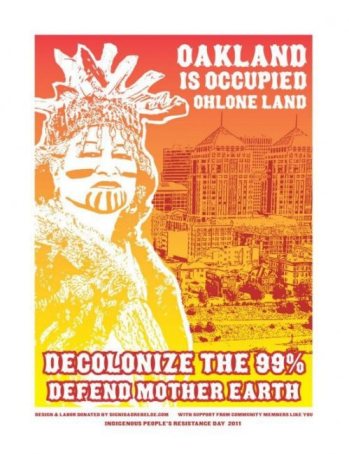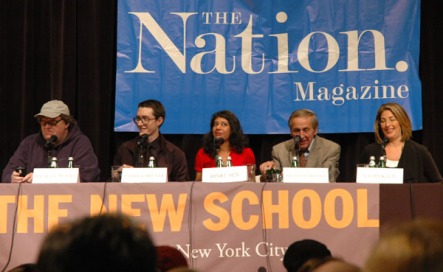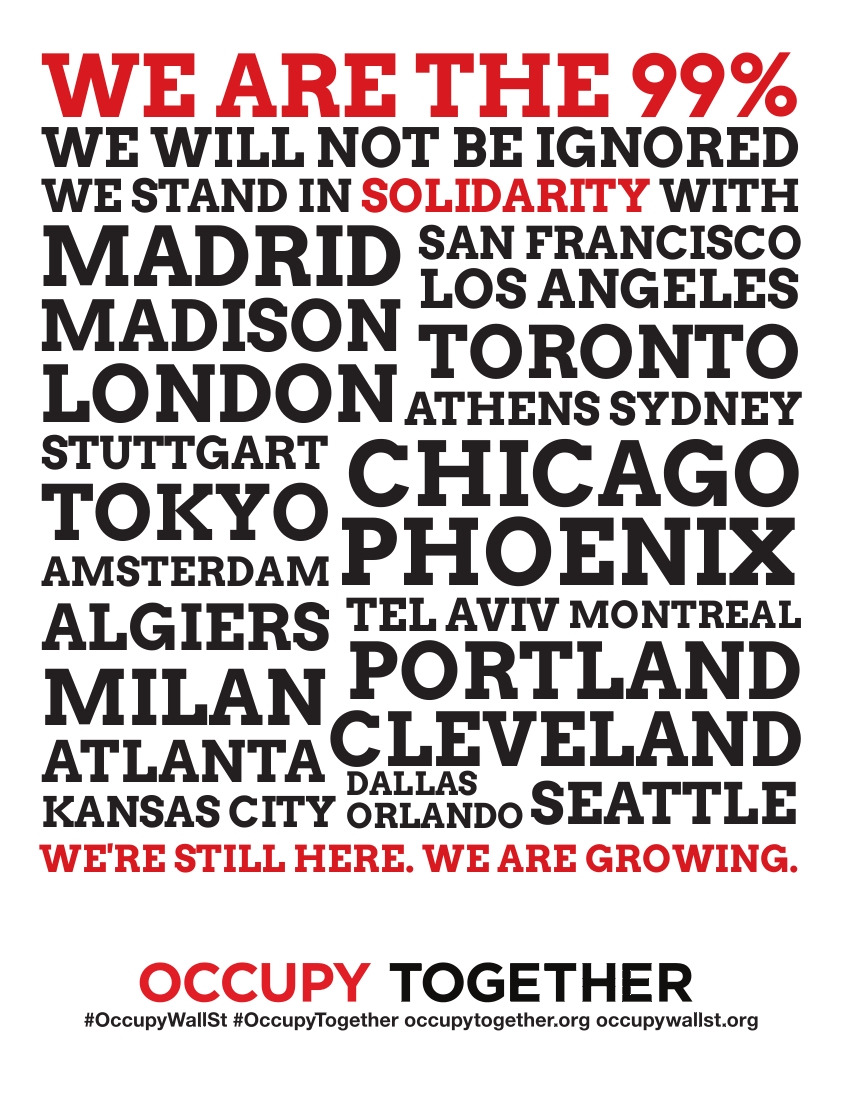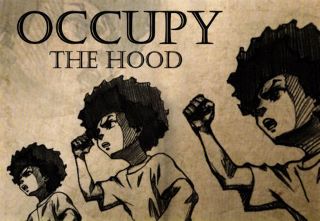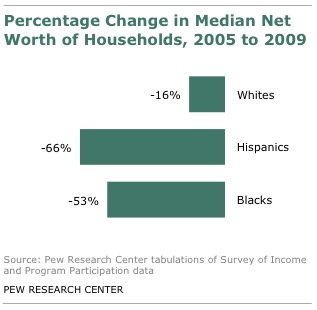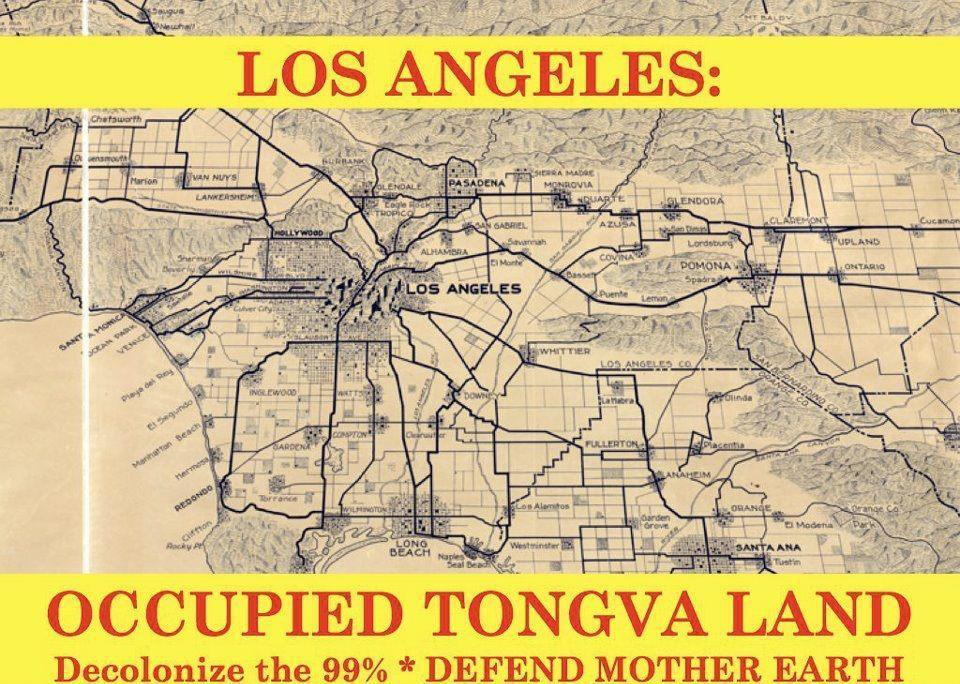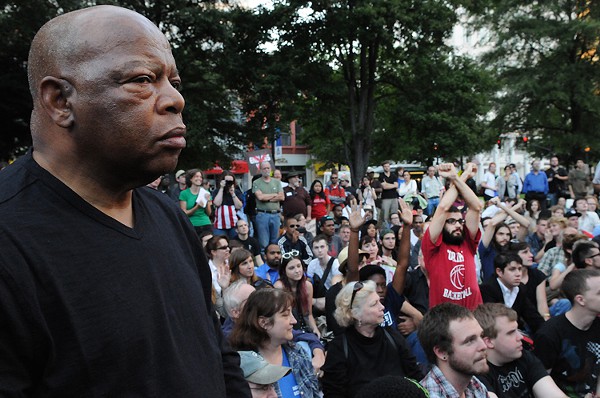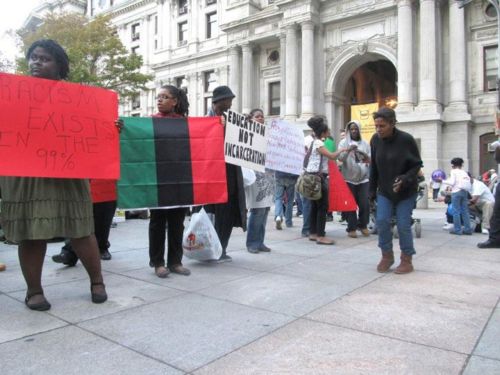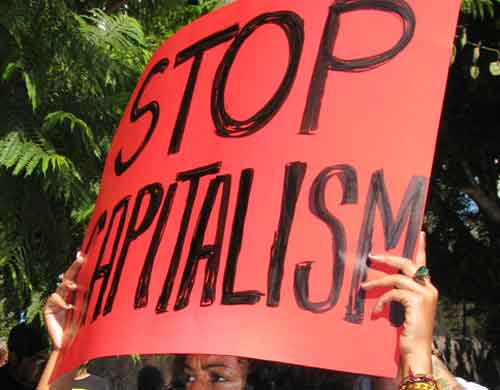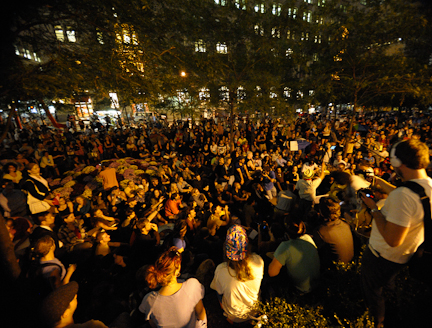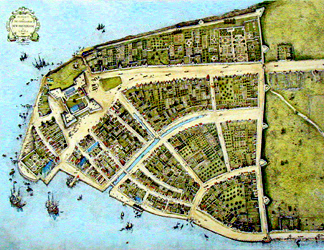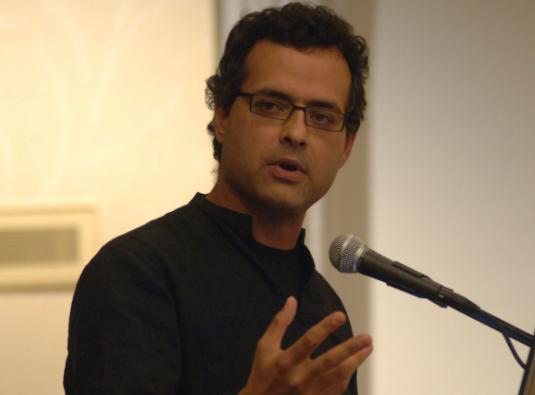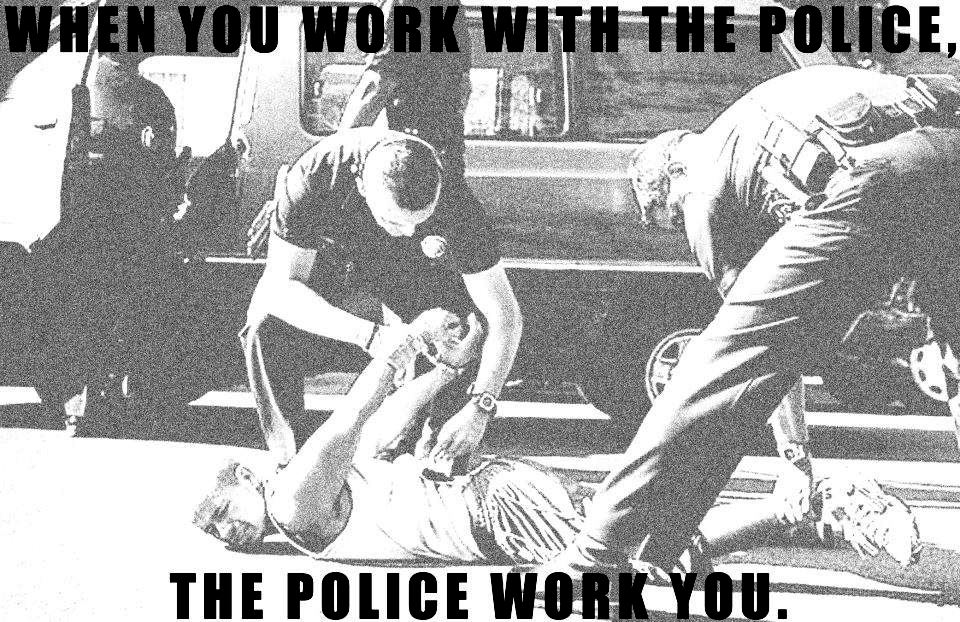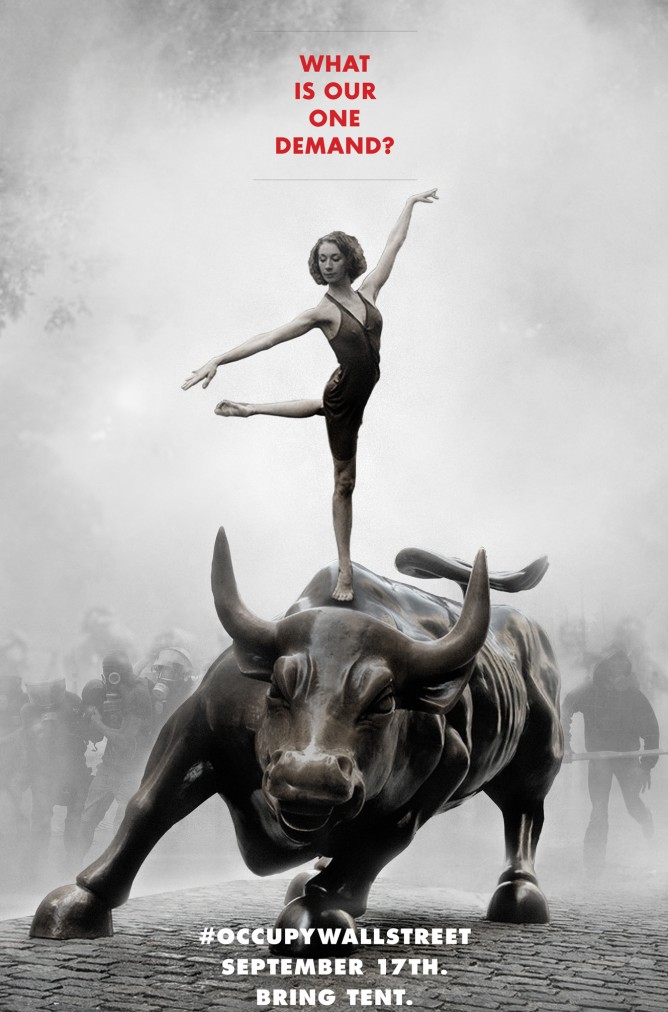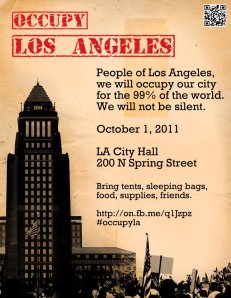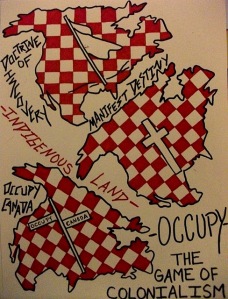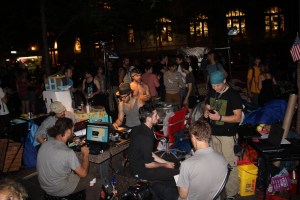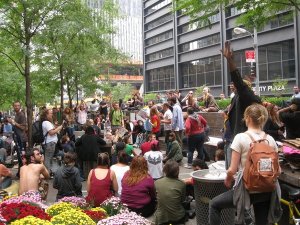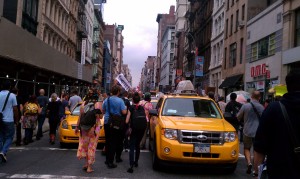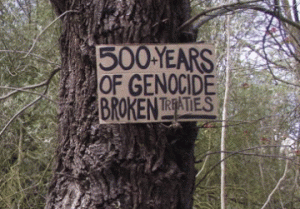April 24, 2012
Liberation through occupation is impossible.
From Tulsa to Oakland to Olympia to Los Angeles to Philadelphia to Harlem to London to Portland to Cleveland to the District of Columbia and many more places, some people of color, including us, were drawn to participate in Occupy Wall Street actions and encampments. Some were drawn into the movement despite concerns about the term occupation. Some were cautious, but hopeful that they could challenge any potential issues by being vocal and contributing to decisions. So far, many of our experiences with Occupy Wall Street have shown that neither justice nor dignity can happen under occupation.
As people fighting for worldwide liberation of all peoples, we do not seek to simply “add” a critique of occupation and colonization to the fight against corporations and capitalism. Currently, some of us have sought to make decolonization our starting point.
Decolonization is not just about abolishing racism, supporting reparations, or wanting settlers to return stolen lands or its equivalent to native peoples.
Decolonization remembers and rebuilds the many systems of civilization—economics, government, politics, spirituality, environmental sustainability, nutrition, medicine and understandings of self, identity, gender and sexuality—that existed before colonization.
Decolonization reminds us that we must love ourselves and resist internalized oppression. Self-hatred allows agents of white supremacy to successfully demonize and dismiss the most marginalized from our communities and instigate divisions amongst us.
Decolonization calls for organizing a movement that is led by individuals and communities whose voices are least likely to be heard.
Decolonization requires collective effort, time, care and trust. It cannot be driven by a meeting agenda, general assembly, or national election. It rejects concepts of revolutionary change that result in short-lived victories or the same oppressive regimes, repackaged under new names and ideologies.
Decolonization insists that implementing these solutions and more traditional ways of living are vital to the survival of the human species.
Occupation is a failed political strategy.
How can a movement founded on occupation serve as a platform for global economic justice, much less liberation?
As people of color, our experiences are many. Some of us are native to these lands now called the United States. Some of us are residents here due to our ancestors’ kidnapping and enslavement or because our families left our home countries to escape violent economic policies enacted by the US and other nations. We have not all experienced the same levels of abuse, poverty, or imprisonment. However, we are all survivors of colonization, a system that continues under global capitalism, war and occupation, and abuses at home such as racial profiling, the prison system, and severe budget cuts. Rather than reclaim and reframe the term occupy for the people, OWS has continued the history of occupation with which we are all too familiar.
Some of us participated in the formation of Occupy People of Color and Queer People of Color groups in order to hold space, or find refuge when encountered with incidents of racism, sexism, or homophobia. The simple fact that our groups served this purpose shows that OWS spaces prioritized the wants, needs, values, and culture of heterosexual white men first. Frankly, many of us have encountered this straight-white-man approach to movement-building too many times to count. In fact, many of the same characters that have attempted to dominate movements in our communities in the past are the same people who lead OWS from the light and shadows.
The physical presence of multitudes of white Occupiers on Wall Street, which was once the site of Native genocide and African chattel slavery, is troubling. Though Occupy activists now widely share the history of Wall Street to show that its foundations are corrupt, they use this truth to justify a new occupation that is 80% white and 68% male.
The 99% is not enough.
How can people who cannot afford housing or enough food to eat each day be expected to unify with people who make over $500,000 a year, or even $250,000?
Many of us live the reality of violence as a routine feature of our daily existence. State violence puts us in jail at higher rates than whites, keeps us poor, and limits our access to jobs, education, housing, and healthcare. This daily grind instigates and intensifies more intimate forms of violence like rape, incest, and battering.
A culture of violence was allowed to take root at many OWS sites but was masked by calls to unite under the banner of the 99%. Many of us experienced or witnessed slurs, attacks, and intimidation based on our race, culture, age, socioeconomic status, educational level, ability and/or perceived gender and sexual identities at Occupy encampments. When we attempted to challenge these abuses, we were silenced or ostracized. We were told that talking about the incidents limited other’s freedom and gave the police an opportunity to invade the camps. At the same time, Occupy Security and Safer Spaces committees racially profiled men of color for behaviors that were widespread amongst all men at the camps. OWS Facilitation forces ignored calls from our communities to address these issues at General Assemblies. Facilitators policed dissent under the guise of being “action-centered” and “agenda-driven.”
After losing its public encampments, Occupy is facing an identity crisis. They continue the chants of We Are the 99% even as more and more people recognize that it is an empty slogan. How can a movement that includes soccer moms who insist that they don’t want to overthrow the government but just want the government to properly take care of their needs stand side-by-side with an anti-authoritarian leadership that wants “insurrection?” Such contradictions make the entire 99% concept meaningless except as an imagined citizenship in a new nationalist identity. But beware: if the American Dream does not include us, then neither does the 99%. When we complain, make too much noise, or look too different we are rejected. If you talk about the connections among race, poverty, democracy, and decolonization, then you are excluded. In fact, you may just be an agitator, “liberal” or an infiltrator.
Movements led by those without the lived experience of day-to-day violence and generational poverty cannot produce justice, transformation, and dignity for those of us who live on the margins and on the streets.
Leaderlessness is the new tyranny.
Over the last few months, we have identified a shadow leadership structure within OWS camps and groups throughout the nation. The participation of people of color does not change the fact that this occupation of public space upholds white supremacy. Some of our own sisters and brothers have silenced our critiques in order to hold on to their positions of power as token people of color in the movement. The history of silencing those who dare to speak their truth has its roots in operations like COINTELPRO. Snitches and informants were roles used to destabilize grassroots movements and target those with the most potential to challenge the state. Fears of this practice of state sabotage have been used to control criticism within Occupy Wall Street. The result is heightened anxiety and/or suspicion of women of color and/or queer voices who challenge organizing practices. Voices that call out internal dynamics are deemed inappropriate, divisive, ineffectual and potentially counterrevolutionary.
It is the Occupy movements’ abject failure to deal with these issues that compelled 35 people of color involved in encampments across the nation to gather for a national conference call in November. We sought to lend one another mutual support as people of color with a myriad of experiences: some were trying to find ways to engage with Occupy Wall Street while others were trying to figure out how to continue organizing outside of OWS. Some of us wanted nothing to do with OWS but wanted to support those of us who had violent experiences in the camps.
Below are just a few of the manifestations of power and privilege at the Occupations:
- In Los Angeles, people were targeted for organizing against police brutality. Their pictures were copied from Facebook and put on posters that labeled them “agitators.”
- In New York, a group of indigenous-identified people played music at Zuccotti Park as an offering on Indigenous People’s Day. They were physically and verbally assaulted by a white male organizer in the middle of one of their songs and told that they did not belong there. Despite the fact this was caught on video, OWS failed to hold this man accountable for the attack, ensuring that each of those musicians never returned to OWS.
- In Tulsa, questioning power structures resulted in being banned from actions as well as being blocked from websites and other social media.
- In Olympia, members felt isolated as the few people of color in the occupation and faced difficulty in talking about race, racism, and racial privilege at all.
- In Oakland, a white male camper pulled a knife on a Black transwoman and subjected her to racial and homophobic slurs. Her calls for support were ignored while the male attempted to criminalize her by referring to her as an “angry” person of color.
- In New York City, when women confronted a man with a history of sexually assaulting people and calling the police on radical organizers in the area, OWS Security told the women that they were being “hostile” to the man and the women were asked to leave.
Despite the diverse experiences held by the 35 people on the call in cities all over the nation, the overwhelming majority agreed that the encampments were not safe spaces for people of color. Some of us cannot attend a meeting ever again for fear of retaliation and physical assault now that we have spoken out. While supporters of Occupy might characterize these events as isolated incidents or unrepresentative of their movement, they cannot hide the fact that people of color do not and never have participated in large numbers.
Our communities have long had demands.
We demand that any movement be clear about its goals, intent, and strategies to ensure that our communities, which are already suffering police violence in the forms of criminalization, incarceration, and surveillance, can make informed decisions about our participation.
We demand that our white allies speak with their comrades about the racial privilege that enables their actions. We do not want white people to “protect” us, but we do want to coordinate strategically before events, during events, and after events.
We demand that Occupy activists cease using their experiences of police repression and brutality to erase the historical and current practices of genocidal violence against our peoples. What does it mean to suggest that people being pepper sprayed or badly injured by a gas canister is somehow on par with the generational traumas and current realities that Native communities, for example, experience?
We demand the acknowledgement and abolition of Rape Culture, which has gone uncontested by the majority of Occupiers. Slavery and genocide were perpetrated through mass sexual assault of women of color. Colonial logic still questions the humanity of women of color to this day, as evidenced by the sexual assault and the sexual exploitation of women of color before, during and after Occupy encampments.
We demand recognition of and space to heal from the psychic trauma that exists in our communities. Mobs of white occupiers must step back from taking physical space and question the tactic of mass actions as the most effective vehicle for social change.
We demand that OWS admit their role in gentrification and take action to combat it. Most occupations have occurred in spaces where homeless people and runaways, mostly people of color and transgendered, have congregated for years. People in these spaces have been pushed out to make downtown centers safe for coffee shops, loft dwellers, and even many members of the OWS movement.
We demand that future encampments be organized and led by those who most need them. The encampment movement has a strong history in places such as Movimento dos Trabalhadores Sem Terra in Brazil and the homeless tent cities at Tompkins Square. Occupy movements have failed to honor or learn from these movements. As encampments end, privileged Occupiers have gone home to their houses and apartments. Those that did not have a home to begin with have found themselves with nothing, not even a tent, and no place to call home.
Above all, we demand that the work that began before OWS be recognized honored and supported. Years of anti-police brutality work, indigenous land movement organizing, and fighting for transgender peoples’ lives are but examples of movements that must not be abandoned in favor of focusing our collective energy on anti-capitalism.
Capitalism is but one strand of a helplessly tangled system of dominance. Trying to tease out one thread merely gnarls it further.
We intend to fight for liberation on all fronts simultaneously. We intend to set the whole twisted mess afire, with or without your help. We invite you to join us and see what we may grow from the ashes.
En lak ech
To our white brothers and sisters:
We recognize you. En Lak Ech—You are the Other Me. To say this is to validate both connection and difference. We must all come to understand colonization and the impact it has had on all of our lives, to see all the things that have been killed and stolen from all of us as a result of our histories of violence.
When calling for decolonization, when demanding that we be heard, when calling for justice after incidents of abuse, you have asked us, What do you want us to do? Do you want us to leave, this space, these lands, this continent?
We do not have the answers for you because we haven’t yet found the answers for ourselves. We want you to strive to find your way. We want you to recognize that the ways that you seek liberation often comes at the expense of ours. We expect you to act from that knowledge with integrity.
To our fellow people of color, queer, transgender, disabled, low-income:
We hope that if you are one of the people who visited OWS and never came back or were forced to leave, given the wrong meeting time, threatened or abused, you will read this and realize you are not alone. We hope that you know that you are needed: your mind, your heart, your fist and your spirit.
We hope that if you continue to build with OWS, you will gain another understanding of the movement after reading this, take time to talk with loved ones about it and consider the path you have chosen.
We hope that we can emerge, renewed and strong, and continue to walk together.
Till soon.
Signed,
Cleveland Anarchist Black Cross, Cleveland, OH
Nicki McCall, Eugene, OR
POCOE (People of Color Occupy Eugene) formerly of Occupy Eugene OR
Anonymous, Los Angeles, CA
DeColonize LA, Los Angeles, CA
Rose Brewer, Minneapolis, MN
Anonymous, New Haven, CT
Anonymous, New York, NY
Anonymous, Oakland, CA
Irina Contreras, Oakland, CA
Nico Dacumos, Oakland, CA
Rebecca Ruiz-Lichter, Oakland, CA
Roberto Mendoza, Tulsa, OK
If you would like to add your signature either anonymously or with your name, please contact us at pocnationalstatement [at] gmail.com.

